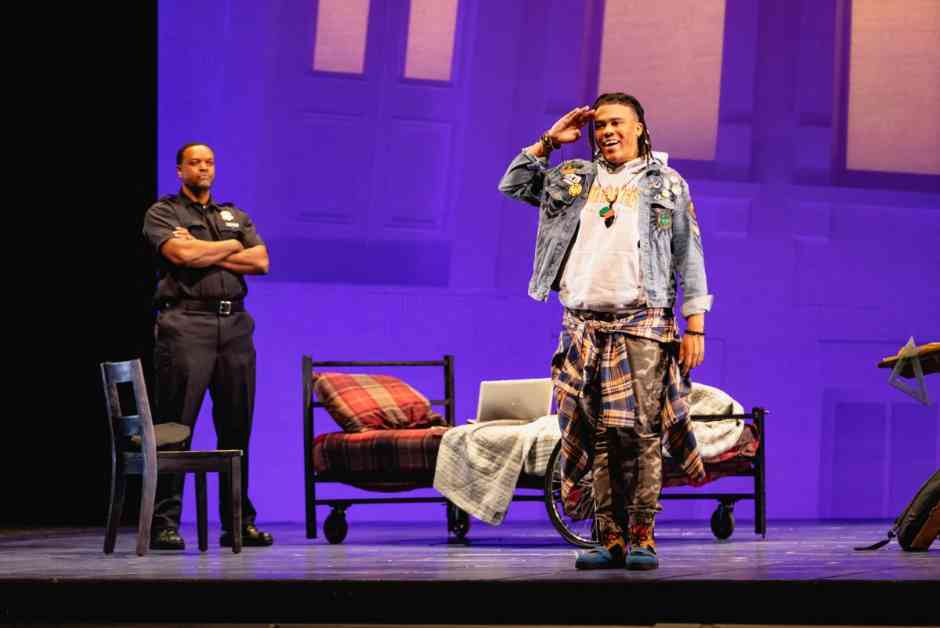Blue, the opera currently playing at Lyric Opera, delves into the complex and emotional impact of police brutality on Chicago communities. The story follows a Black family in contemporary Harlem, focusing on the father who is a police officer caught in a moral dilemma. The opera explores themes of race, family, and the devastating effects of police violence on individuals and communities.
Commissioned in 2015, Blue was created in response to the need for a work that addresses race relations in America. The father in the story, portrayed by bass Kenneth Kellogg, struggles with his role as a police officer and the conflicting demands of his job and his family. The opera delves into the emotional turmoil of a father who must navigate his loyalty to the police force and his grief over the loss of his son, who is killed by police during a protest demonstration.
The son, played by tenor Travon D. Walker, represents the younger generation’s defiance and determination to fight against systemic injustice. His clashes with his father highlight the generational divide and the complexities of navigating activism and family dynamics in the face of police brutality.
The mother, sung by mezzo-soprano Zoie Reams, undergoes a transformation from a vibrant force in the family to a grieving figure consumed by sorrow. The opera explores the ways in which grief and loss can impact individuals differently, further highlighting the emotional depth of the story.
Through powerful vocal performances and a poignant libretto, Blue captures the raw emotions and struggles of a family grappling with the aftermath of police violence. The creative team behind the opera skillfully weaves together themes of love, loss, and resilience, creating a moving and thought-provoking narrative that resonates with audiences.
With its stark sets and lighting, Blue creates a visually striking backdrop for the emotional intensity of the story. The orchestral score adds depth and nuance to the characters’ experiences, enhancing the opera’s impact and emotional resonance.
In the end, Blue offers a poignant reflection on the far-reaching effects of police brutality on individuals and communities. It serves as a powerful reminder of the need for empathy, understanding, and justice in the face of systemic racism and violence. Through its compelling storytelling and powerful performances, Blue invites audiences to confront difficult truths and engage in meaningful dialogue about the impact of police brutality on Chicago communities.


